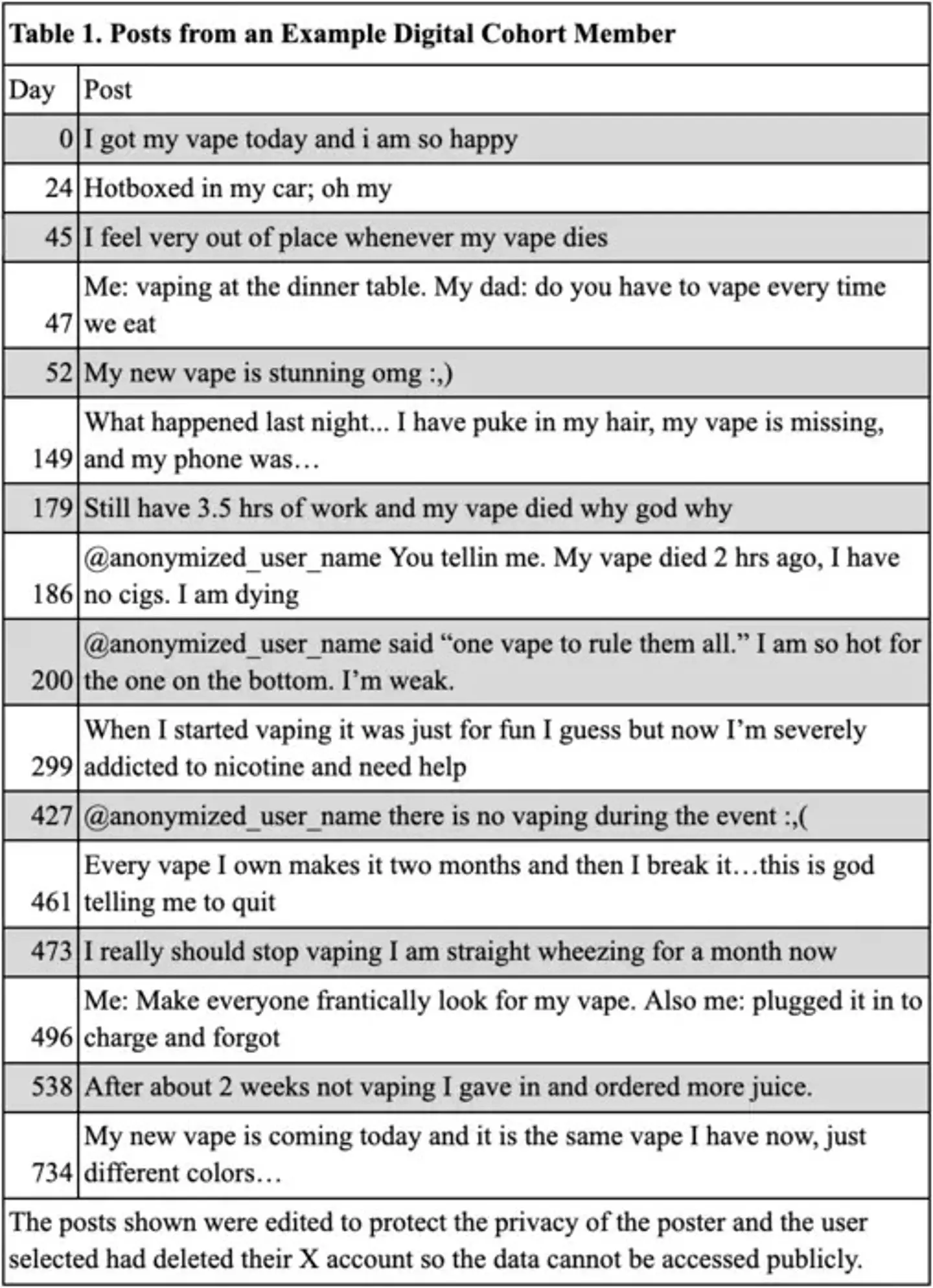
A new study on vaping has produced a new warning sign that could indicate you're addicted to puffing away on the alternative smoking product.
The popularity of vaping has boomed in the last decade, with it initially being advertised as an alternative to traditional smoking products, such as cigarettes and cigars. And with a smoking ban coming in regardless of who wins the 2024 general election, they are here to stay as a permanent choice.
Since then, they have become a product in their own right, with massive amounts of people taking to them due to the flavours that come with them - especially the disposable ones, which will be banned in the UK as of April next year.
But vaping isn't risk free, with one 17-year-old girl rushed to A&E after 'turning blue' for vaping the equivalent of 57 ciggies a day.
One doctor has also warned we might not see the true dangers of vaping for up to three decades from now, much in the same way the dangers of tobacco products only came with time.
Advert
Now, a new study has offered an insight in to one sign you might be addicted to vaping and whether you should have a rethink about how much you're puffing.
Tapping in to the vast amount of data now available on social media, a new study from scientists at the University of California San Diego has brought about a significant new approach to understanding the vaping epidemic.
Published today (19 June) in the American Journal of Preventive Medicine, there has been a huge shift in focus to our habits when it comes to vaping and social media - but it doesn't stop there.

What is the background?
John W. Ayers PhD, from the Qualcomm Institute within UC San Diego, is the lead author on the new study.
Advert
For Ayers, he said the researchers studying social media 'have tended to analyse the frequency and content of posts'.
He said: “While this can highlight trends and patterns, a longitudinal study that follows a group of the same individuals over time — a cohort — is considered the gold standard of observational scientific evidence.
"We have introduced a way to create a ‘digital cohort’ — a 21st century evolution of this important technique — to study e-cigarette vaping behaviour, including how long it typically takes to show signs of addiction, experience adverse effects and try to quit."
Co-author Davey Smith MD, chief of the Division of Infectious Disease and Global Public Health, said the study used 'the wealth of data people are organically sharing on social media platforms' to help produce the massive cohort study - which is thought to be the largest in medical history.

The study's findings
There was one big cut off point for which people were assessed in the study.
Advert
From more than 19 million vaping-related posts, they identified 25,112 X (formerly Twitter) accounts that mentioned vaping in at least 10 posts. This gave researchers a digital cohort with a combined 43.8 million person-days of observation.
Among the posts made by people included in the sample, there was a trend that began with being introduced to vaping and being happy about it. But this then moved on to vaping hacking; signs of addiction; responses to friends who support or discourage vaping; adverse health effects from vaping; and finally attempts to quit before starting back up again.

Among randomly sampled accounts belonging to people who vaped, the researchers found that 27% reported making an attempt to quit during the study period. Of all first quit attempts, 26% were successful. Among those with a failed first attempt, 13% went on to make an additional quit attempt, with a 36% success rate.
On average, people made their first quit attempt 531 days after their earliest vaping post. If that attempt failed, a second attempt typically came 361 days later.
Advert
"These findings give us a lens into the vaping cessation journey that has been difficult to obtain through traditional research methods," added Ayers. "By tapping into the real words and experiences of people who vape, this approach can guide more timely and effective public health interventions."
What can we learn?
When it comes to vaping, a clear pattern has been identified by the new study with a massive focus on posting online about vaping - both the good and bad bits - and it forming part of your online persona.
If this is you, you might well fit in to the category of being addicted.
On monitoring social media posts when it comes to identifying health risks, scientists now believe it can go wider than vaping and be applied to numerous diseases, conditions, behaviours or outcomes.